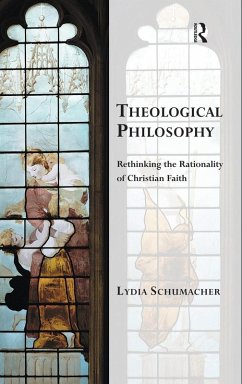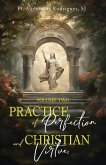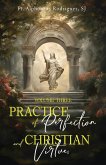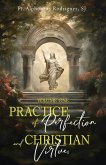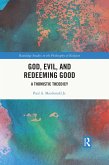For much of the modern period, theologians and philosophers of religion have struggled with the problem of proving that it is rational to believe in God. Drawing on the thought of Thomas Aquinas, Theological Philosophy seeks to overturn the longstanding problem of proving faith's rationality and to establish instead that rationality requires to be explained by appeals to faith. Building on a constructive argument developed in a companion book, Rationality as Virtue, Lydia Schumacher advances the conclusion that belief in the God of Christian faith provides an exceptionally robust rationale for rationality and is as such intrinsically rational.
Hinweis: Dieser Artikel kann nur an eine deutsche Lieferadresse ausgeliefert werden.
Hinweis: Dieser Artikel kann nur an eine deutsche Lieferadresse ausgeliefert werden.
"Luminously clear, stunningly thought-provoking, wonderfully constructive - this work draws contemporary religious thought towards the very heart of reality, where existence and understanding and love are all one. Philosophers, theologians, and ethicists of many schools and many levels of expertise will be excited to behold something we all somehow knew must be so, but had never yet quite seen for ourselves."
- Mark A. McIntosh, Loyola University of Chicago, USA
"This is an impressive, creative, and highly original piece of theological work. It makes an important contribution to apologetics and the on-going debates about faith and reason. I would recommend it to anyone who is interested in apologetics and the philosophy of religion."
- Yonghua Ge, Beijing Normal University
"We are treated to an admirably clear, jargon-free, and normative (rather than merely historically descriptive) exposition of a characteristically ancient and medieval thought about the essentially God-directed nature, purpose, and function of human rational capacities."
- Sameer Yadav, Westmont College
- Mark A. McIntosh, Loyola University of Chicago, USA
"This is an impressive, creative, and highly original piece of theological work. It makes an important contribution to apologetics and the on-going debates about faith and reason. I would recommend it to anyone who is interested in apologetics and the philosophy of religion."
- Yonghua Ge, Beijing Normal University
"We are treated to an admirably clear, jargon-free, and normative (rather than merely historically descriptive) exposition of a characteristically ancient and medieval thought about the essentially God-directed nature, purpose, and function of human rational capacities."
- Sameer Yadav, Westmont College

